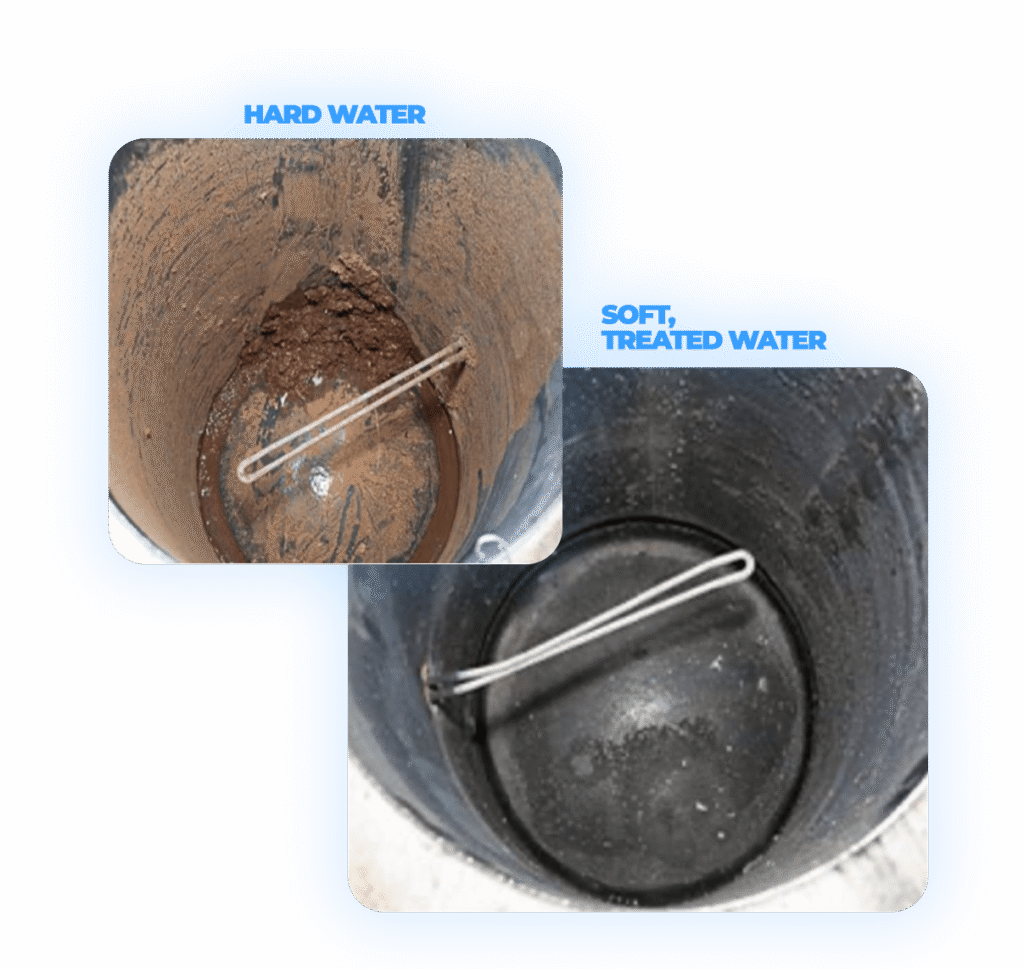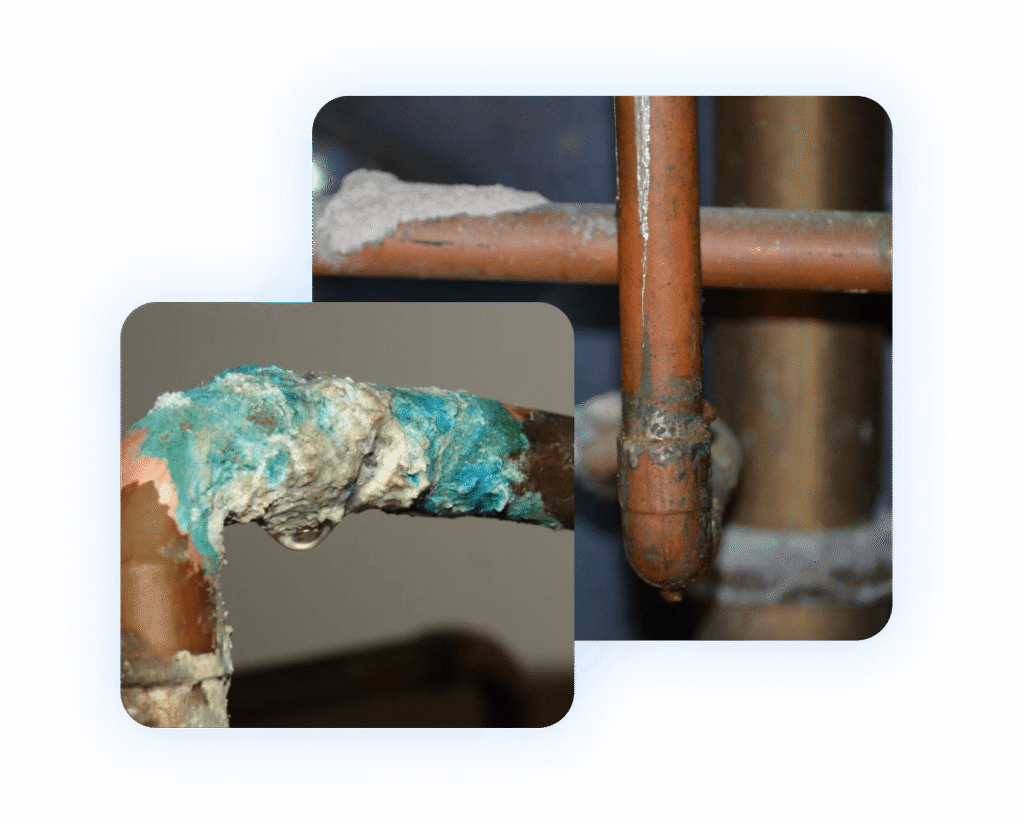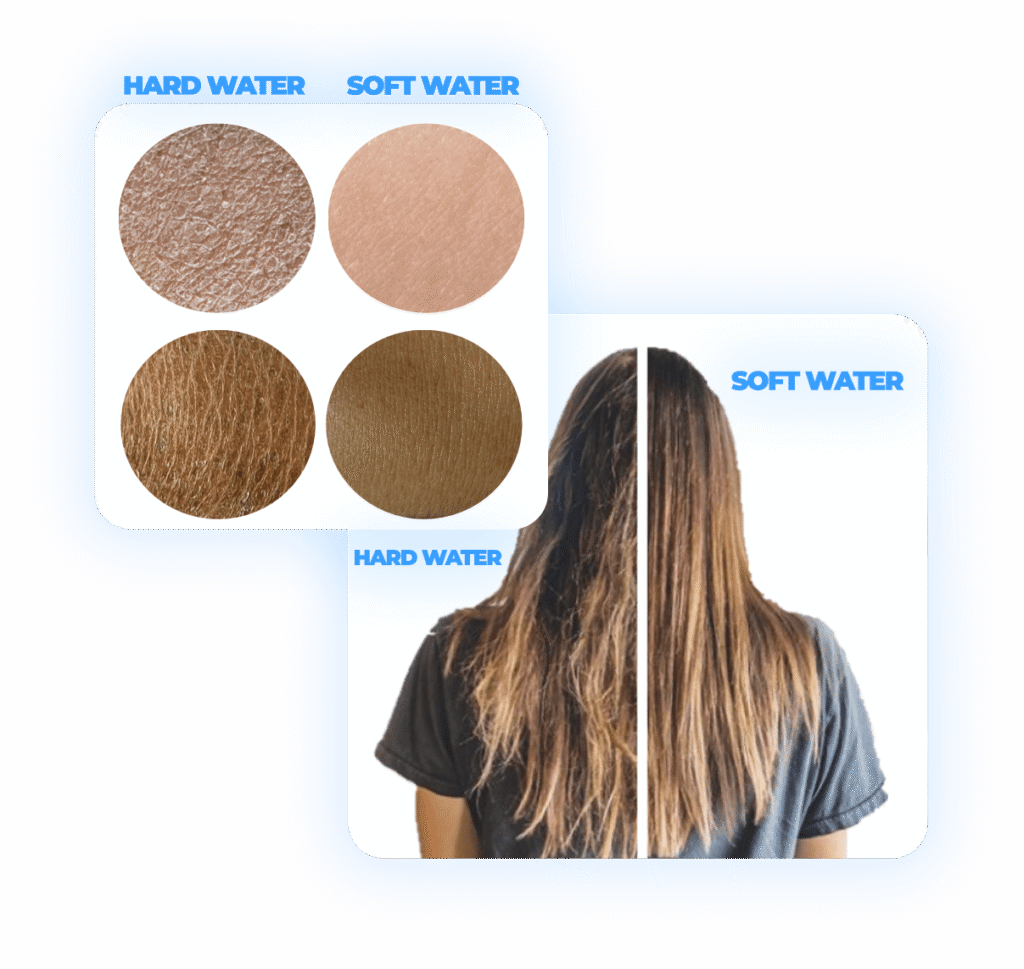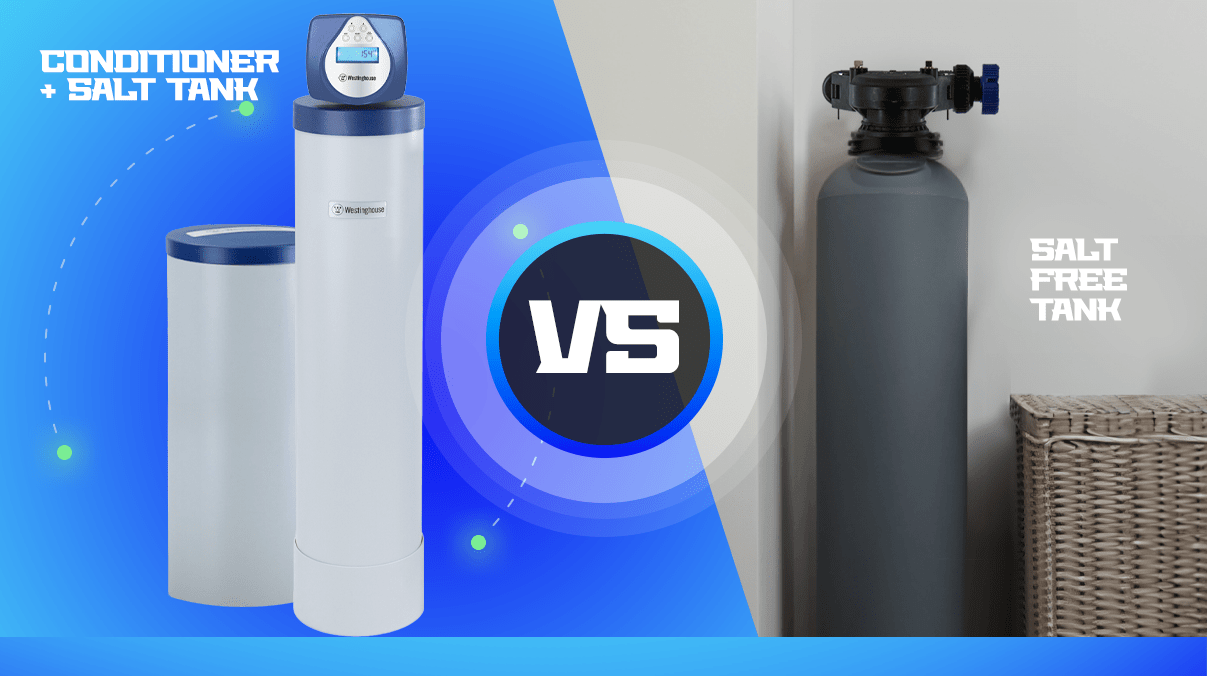It doesn’t stain your walls. It doesn’t smell. And it won’t keep you up at night. But make no mistake — hard water is slowly wrecking your home, and it’s probably costing you hundreds (if not thousands) each year without you even realizing it.
The minerals in hard water — mostly calcium and magnesium — may be natural, but the damage they cause over time is anything but. From clogged pipes to broken appliances to rising energy bills, the hidden costs of hard water add up fast.
Here’s what every homeowner needs to know.
1. Shortened Appliance Lifespan
Let’s start with the heavy hitters — your major home systems.
Hard water builds up inside your water heater, dishwasher, washing machine, and even refrigerators with water lines. Over time, this mineral buildup forces your appliances to work harder, overheat, or flat-out fail.
Alt text: Inside view of a hot water heater filled with hard mineral scale buildup from untreated hard water.
The result:
-
Burned-out heating elements
-
Clogged valves and hoses
-
Costly service calls and premature replacements
💸 Estimated cost:
$200–$800 per repair or replacement cycle. Multiply that over the life of your home and it’s a serious bill.

2. Higher Energy Bills
When your water heater is coated in mineral scale, it has to burn more fuel to do the same job. Just 1/16 of an inch of scale can reduce efficiency by up to 12%. That means higher power or gas bills — every single month.
Think of it like this:
You’re paying more to heat water that never gets hot enough and damages your system while it’s doing it.
💸 Estimated cost:
$10–$30 extra per month = $120–$360 per year, just to fight against scale.
3. Clogged and Corroded Plumbing
Hard water doesn’t just clog showerheads — it narrows your entire plumbing system over time. Minerals stick to the inside of your pipes, gradually reducing water pressure, flow rate, and even causing complete blockages in extreme cases.
Alt text: Cross-section of residential pipe with significant hard water scale restricting water flow.
Left unchecked, this can lead to:
-
Poor water pressure
-
Slow drains
-
Expensive re-piping jobs
💸 Estimated cost:
Pipe descaling: $300–$600
Full pipe replacement: $4,000–$10,000

Does Hard Water Affect PEX Pipes?
PEX (cross-linked polyethylene) is often marketed as a more resilient alternative to copper or galvanized steel plumbing — and in many ways, it is. It doesn’t corrode like metal, and it’s less prone to pinhole leaks caused by aggressive water chemistry.
But here’s what most homeowners don’t hear:
While PEX doesn’t corrode, it’s still vulnerable to internal scale buildup caused by hard water. The calcium and magnesium minerals in your water will gradually coat the inside of PEX pipes just like they do with copper — restricting flow and reducing pressure over time.
Key issues with hard water in PEX plumbing:
-
Reduced internal diameter = lower water pressure
-
Clogged fittings and connectors
-
Potential for flow disruption at elbows or manifolds
-
Strain on fixtures and appliances at the endpoints
And because PEX lines are often hidden behind walls and slab, these issues are harder to detect — meaning the damage can go unnoticed until a fixture stops working or a full repipe is needed.
💸 Estimated impact:
Slow flow and fixture issues can cost hundreds to diagnose and repair. If you ever have to flush your system or replace clogged valves, it’s labor-intensive and disruptive.
Bottom Line:
PEX might dodge corrosion, but it doesn’t dodge scale. The only way to protect any pipe — copper, PEX, or otherwise — is by removing the hardness minerals before they ever enter your plumbing.
4. Constant Cleaning and Replacing Fixtures
You’re scrubbing more than you should — chalky residue on faucets, soap scum on shower doors, and cloudy glasses out of the dishwasher. That’s all hard water leaving its mark.
And if you’ve ever replaced a faucet, showerhead, or coffee maker that stopped working? Odds are hard water was the culprit.
Alt text: Close-up of a bathroom faucet covered in white scale from hard water minerals.
💸 Estimated cost:
Cleaning supplies: $100–$200/year
Fixture replacement: $500–$1,000 every few years
5. Damage to Skin, Hair, and Laundry
The effects aren’t just mechanical — they’re personal.
Hard water makes it harder to rinse off soap, leaving a residue that causes dry skin, brittle hair, and worsens skin conditions like eczema. It also wears out clothing fibers faster and dulls fabrics.
If your soap never seems to lather, or your towels feel stiff no matter what detergent you use, you’re feeling the impact already.
💸 Estimated cost:
More shampoo, conditioner, lotion, and detergent = $$
Plus extra loads, rewashing, and faded clothes over time

Final Word: It Adds Up
On their own, each of these problems might seem minor. But combined?
Hard water can quietly cost you thousands per year. And most homeowners don’t realize it until the damage is done.
The good news? You can stop the bleeding now.
What You Can Do About It
The effects of hard water aren’t just inconvenient — they’re expensive, and they get worse the longer you ignore them. Fortunately, stopping the damage is simple.
A professionally installed, whole-home water conditioning system solves the problem at the source.
It doesn’t just filter out the symptoms — it removes the actual minerals causing all the scale, corrosion, and buildup in your home.
At Tennessee Water Company, we install Westinghouse salt-based systems because they’re American-made, backed by a lifetime warranty, and proven to eliminate hardness at the root. That means:
-
Appliances that last longer
-
Water heaters that run more efficiently
-
Cleaner dishes, softer towels, healthier skin and hair
-
And fewer unexpected repair bills
🧪 Schedule your free in-home water test today at tnwatercompany.com and find out exactly what’s in your water.
We’ll show you the science behind the solution.



